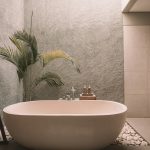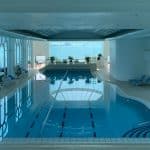Winter’s harsh grip in Quebec brings unique challenges for your windows. From ice build-up and condensation to heat loss and potential damage, understanding these effects is essential for homeowners. This guide provides insights and practical solutions to safeguard your windows, ensuring they remain effective throughout the season. Prepare to protect your home and maintain comfort, regardless of the icy weather outside.
The Importance of Winter Window Preparation in Quebec
The harsh winter climate in Quebec is notorious for its bitterly cold temperatures and prolonged snowfall, which can have a significant impact on homes, particularly on the efficiency and durability of windows. Without proper preparation, windows may become a source of discomfort and increased energy bills during the long winter months, making it crucial to address and prioritize winter window preparation.
Sujet a lire : What are the top ergonomic designs for a home library chair in a Cambridge townhouse?
Selecting the Right Windows for Quebec’s Cold Climate
Choosing the right windows for your home in Quebec is not only about style but more importantly about functionality and energy efficiency. Composite window frames, such as those made from fibreglass or vinyl, are ideal for cold climates because they prevent heat transfer efficiently while being durable and low-maintenance. While aluminum frames offer durability, they are less energy-efficient unless paired with an insulating hybrid design. Wood frames, while excellent at retaining heat, can be prone to warping and require more upkeep due to temperature-induced expansion and contraction.
Double- and triple-glazed windows are essential for preventing window drafts and minimizing heat loss, as these designs include insulative materials and gases like argon or krypton between panes to maintain warmth inside. Additionally, Low-E glass with metallic oxide coatings reflects heat back into the home, reducing transfer and maintaining a cozy indoor environment.
Avez-vous vu cela : What is the most efficient layout for a vegetarian kitchen in a Brighton townhouse?
Key Preparation Steps for Winter Window Maintenance
To ensure your windows remain effective throughout Quebec’s demanding winter, regular inspection and maintenance are fundamental. Here are some steps to help prepare your windows against the cold:
- Inspect Caulking and Weatherstripping: Examine the edges of your windows for any sign of worn or damaged caulking and weatherstripping. Replacing these can prevent air leaks and heat loss, maintaining a seal that keeps out drafts.
- Assess Window Frames: Check for signs of warping or decay, especially around corners and joints, which can lead to air leaks. Maintaining healthy frames is essential for winter window heat retention.
- Evaluate Ease of Operation: Difficulty in opening and closing windows may indicate compromised seals. Repair or replacement should be considered to ensure optimal insulation.
- Monitor Indoor Humidity: Regulating humidity can prevent window condensation issues that arise from temperature differences. Utilizing exhaust fans after cooking or showering and maintaining a stable indoor temperature can minimize condensation.
By following these strategies, you can significantly reduce the energy demands of your home, keep it warm and comfortable throughout the winter, and potentially increase its value. For professional assistance, you might consider services like those from https://vitresultranettes.com/en/, known for their expertise in window maintenance and cleaning in the Montreal area.
Energy-Efficient Windows for Quebec’s Winter
Window Types for Cold Climates
In the harsh Quebec winter, choosing the right window type is crucial for maintaining warmth and comfort in your home. Composite window frames, such as fiberglass and vinyl, are excellent choices due to their ability to prevent heat transfer while offering durability and low maintenance. These materials are specifically designed for cold climates to withstand temperature fluctuations, thereby increasing the energy efficiency of your windows.
Alternatively, while aluminum frames are sturdy and require minimal upkeep, they do conduct heat, which is less than ideal for energy conservation. To counter this drawback, aluminum hybrid frames with improved insulation properties offer a balanced solution. Wood frames, on the other hand, are traditionally favored for their insulating properties, as they do not conduct heat. However, wood requires regular maintenance and can be susceptible to damage from moisture and temperature changes, making it a less practical option for the seasoned winter homeowner in Quebec.
Benefits of Double and Triple Glazing
The insulation provided by double and triple-glazed windows is significantly superior to that of single-pane variations. This enhanced insulation is achieved by creating a vacuum between the panes, often filled with inert gases such as argon, krypton, or xenon. This setup not only reduces heat loss but also helps in minimizing noise pollution, a boon for residential tranquility.
Double glazing is typically sufficient for Quebec’s winters, but triple glazing adds an extra layer of protection and energy efficiency, ensuring a cozy interior without the excessive use of heating systems. This kind of window configuration can substantially reduce energy bills by keeping more warmth inside the home during frigid months.
Features of Low-E Glass and Effective Window Frames
Low-E (low emissivity) glass is an innovative solution designed to enhance window performance in cold climates. It features an invisible metallic oxide coating on the outer side of the innermost pane, which reflects heat back into the room instead of allowing it to escape. This not only optimizes energy efficiency but also lets in ample natural light, which is vital during the shorter days of winter.
Moreover, for any window to function optimally, the frame must complement the glass. Effective frames—whether composite, hybrid aluminum, or well-maintained wood—are integral to maximizing the benefits of Low-E options. Frames should offer a high Solar Heat Gain Coefficient (SHGC) and low U-Value, ensuring minimal heat loss while admitting beneficial solar heat.
For those aiming to update their window systems in Quebec’s demanding climate, investing in these technologies and materials is not just about comfort but also about making a positive economic and environmental impact. This strategic approach places emphasis on future savings and sustainability while enhancing your home’s overall value and livability.
Common Winter Window Problems and Solutions
Identifying and Resolving Drafts
One of the most pervasive winter window challenges is the intrusion of chilly drafts. This phenomenon often results from poor sealing or gaps around window frames, significantly impacting indoor comfort and energy efficiency. To address this, sealing window gaps with effective weatherstripping is crucial. Begin by inspecting your windows for noticeable breezes or temperature differences around the frame. Pay special attention to older caulking, which might be cracked or peeling. Replacing worn caulking and adding high-quality weatherstripping can greatly reduce cold air infiltration.
Additionally, for those noticing persistent drafts even after sealing, an insulating window film can help improve the thermal barrier. Another practical solution is installing thermal curtains or window draft stoppers. These methods not only bolster insulation but also enhance overall window efficiency.
Managing Condensation and Frost on Windows
Condensation and frost buildup are frequent nuisances during Quebec’s harsh winters. These occur when moist indoor air meets the colder glass surface, leading to widespread moisture-related issues. Excessive condensation can damage window seals and frames, creating further thermal inefficiencies.
To combat this, controlling indoor humidity is paramount. Employ dehumidifiers and ensure adequate ventilation, especially in moisture-rich areas like bathrooms and kitchens. Reducing the thermostat slightly can also help lessen the moisture in the air. For a long-term fix, consider upgrading to double- or triple-glazed windows, which trap inert gas between the panes, minimizing frost formation.
Another useful strategy like low-emissivity (Low-E) glass can effectively manage indoor temperatures by reflecting heat back into the space, thus minimizing the conditions that lead to frost formation on windows.
Maintenance Tips for Preventing Warping and Damage
Warping of window frames is another serious concern. This issue primarily affects wood frames, which can expand and contract with fluctuating temperatures and moisture levels, leading to misaligned or difficult-to-operate windows. To mitigate these issues, regular maintenance is essential.
Inspect window frames at the start of the winter season for any signs of warping or deterioration, especially at corners and joints. If encountered, the affected frames should be replaced with more durable materials such as vinyl or fiberglass. These materials provide higher resistance to weather changes and require less maintenance compared to wood.
To further safeguard against damage and maintain operation over the winter, homeowners are advised to lubricate window hardware, such as hinges and locks, using silicone- or Teflon-based lubricants. These prevent stiffness and freezing, assuring smooth functionality even in the most frigid conditions.
By sustaining these strategies, windows can remain functional, efficient, and resistant to the harsh effects of winter, ultimately ensuring a cozy home environment without the excessive energy costs.
Maximizing Energy Savings Through Proper Window Care
Insulation Techniques and Treatments
Maximizing energy savings during the cold Quebec winters primarily hinges on optimizing window insulation. Triple-pane windows equipped with inert gases like argon or krypton between the panes are crucial, harnessing their superior insulating properties to lock in warm air. Simultaneously, Low-E (low-emissivity) glass reflects heat back into the home, preventing heat loss. This approach reduces the need for excessive heating, thus lowering energy bills.
The installation of insulating window films is another practical measure. These films add an extra layer of insulation and serve as a barrier against heat loss, without compromising the penetration of natural light. Weatherproofing your windows through effective caulking and weatherstripping minimizes drafts and prevents heat from escaping, creating a more energy-efficient home.
Importance of Regular Maintenance and Inspections
Regular window maintenance plays a pivotal role in energy conservation. Start by inspecting and replacing any deteriorating caulking around your window frames. This prevents air leaks and heat loss, which are common issues during the harsh winter months. Check the weatherstripping—it should be intact and effective in sealing off any potential cold drafts.
Another vital maintenance task involves monitoring the ease of window operation. Difficulty in opening or closing windows often signals poor sealing. Such issues need prompt attention to maintain proper insulation and to prevent energy loss. Moreover, keeping an eye on indoor humidity levels is critical to minimizing condensation and preventing damage to your window frames and seals. Excessive condensation should be wiped regularly, and methods to control indoor humidity, like using exhaust fans, should be employed.
Long-term Benefits of Energy-Efficient Window Investments
Investing in energy-efficient windows not only enhances comfort during Quebec’s long, frigid winters but also brings significant savings on heating costs. Windows with a U-Value of ≤ 0.33 and a Solar Heat Gain Coefficient (SHGC) of ≥ 0.55 are particularly effective in cold climates, balancing heat retention with energy efficiency.
The benefits extend beyond financial savings. Upgrading to modern, high-performance windows can increase the overall value of your home and contribute to environmental sustainability by reducing your household’s carbon footprint. These windows also offer a quieter indoor environment by insulating against outdoor noise.
Moreover, the shift towards smart-home technology in modern window designs enhances these benefits. Integrating automated systems that adjust window shades based on sunlight exposure can further optimize energy use and ensure a cozy home environment. With windows playing such a critical role, proactive investments in their efficiency are a smart way to navigate Quebec’s brutal winters while keeping heating costs manageable.









